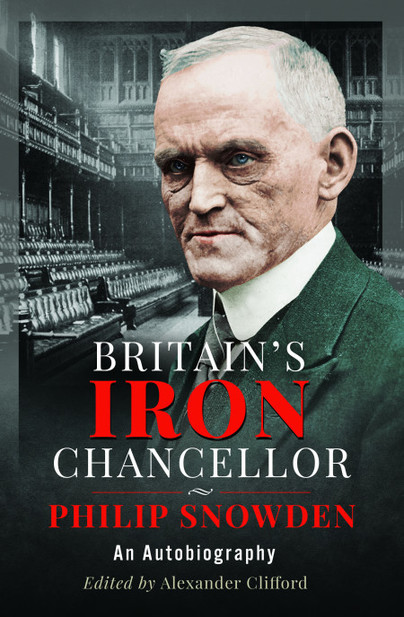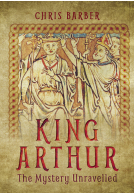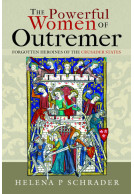Britain’s Iron Chancellor (Hardback)
An Autobiography
Imprint: Pen & Sword History
Pages: 224
Illustrations: 32 mono illustrations
ISBN: 9781399024952
Published: 16th August 2024
(click here for international delivery rates)
Order within the next 10 hours, 29 minutes to get your order processed the next working day!
Need a currency converter? Check XE.com for live rates
| Other formats available | Price |
|---|---|
| Britain’s Iron Chancellor ePub (3.8 MB) Add to Basket | £18.99 |
PHILIP SNOWDEN was a proud Yorkshireman, a founding father of the Labour Party, its first Chancellor of the Exchequer and eventually was seen as a traitor by the movement he did so much to build. Growing up in the poverty of a weaving village in the Pennines, Snowden was paralysed in his twenties but overcame his disability by teaching himself to walk again with the aid of two sticks. He came to socialism in the 1890s and helped build Labour from a fringe sect into a governing party. Snowden was Labour’s undisputed economic expert for decades and served as chancellor three times in the 1920s and 30s. He would be expelled from the party for joining Ramsay MacDonald’s controversial National Government in 1931 and has been condemned as a turncoat ever since. A gifted orator, Snowden was regarded as the archetypal Yorkshireman; strong-willed and straight-talking, caustic and biting in his criticism but warm in friendship. He earned the moniker ‘Iron Chancellor’ after doggedly standing up to the French during tense negotiations, with one Paris journal bawling, “There is only one thing left – we must occupy Yorkshire!” Snowden’s infamous 1931 election broadcast, in which he condemned Labour’s programme as “Bolshevism run mad”, played a major role in the National Government winning the biggest landslide in British electoral history.
In 1934, Snowden wrote his autobiography. It is one of the most readable memoirs of the period, packed with Snowden’s characteristic wit and sarcasm. Snowden’s portrait of his youth in the rural Yorkshire of the 1870s is a unique window into a lost world, while his narrative of the pioneering days of the Labour movement is passionate and vivid. In describing his long career in parliament and government from 1906-1932, the great men of the age jump off the page as we encounter Asquith, Lloyd George, Churchill, Baldwin and MacDonald among others in this tumultuous period of British history. Snowden’s story is both an absorbing account of a fascinating time and an invaluable source for students and scholars.
As an amateur Local Historian, who lives in the hamlet where Philip Snowden was born, it was with great interest that I learnt about this book.
Mark Barnes
Alex Clifford has done an excellent job of condensing the two volumes of the original autobiography into a single, more manageable 330-page book. His foreword is interesting and very informative about Philip Snowden’s character and life in politics. He shows Snowden’s early work to be that of a very important figure in the founding of the Labour Party.
In shortening the work, it loses none of the essential episodes in Snowden’s political life, in the very fraught inter-war years and he still manages to make the narrative flow throughout.
All in all, it makes a good read for anyone wishing to discover the essence of the Iron Chancellor, a self-made man who rose to high office from a very humble background.
"Britain’s Iron Chancellor is a book that provides a greater insight into what made Philip Snowden tick than any more recent works, of which there have been few. It also offers an insight into the Labour Party’s history that is far more complex and nuanced than is often presented in other work. Snowden’s contribution to the economic orthodoxy of the early Labour Party and his relationship with MacDonald, Hardie and the Trade Union movement give a clear understanding of both how Labour succeeded in the early years of the twentieth century and how it also failed. Echoes of those failures can be seen in subsequent decades, especially in the at times deep antagonism felt between the Parliamentary Party and the Trade Union movement, an antagonism laid bare in Snowden’s autobiography.
Will Barber-Taylor; The Social Review
Philip Snowden was certainly a product of his time and his autobiography, complex in the tight rope it walks between a personal memoir and an attempt to create an authoritative history of the period in which he lived, is a fine example of that. Snowden and his life’s work – to help create a Labour Party that could be a force for change in British politics- helped create the times that we live in. The past can often act as an imperfect guide to the present and whether you read this book because you want to understand Philip Snowden better or because it may provide some insight into how a Labour government can attempt to handle an economic crisis, I would highly recommend that you do."
About Alexander Clifford
Alexander Clifford is a historian who has studied at the universities of Leeds, Munich and Northumbria, and is an expert on Europe in the interwar period and has made a particular study of the Spanish Civil War. His previous publications include The People’s Army in the Spanish Civil War: A Military History of the Republic and International Brigades 1936-1939 and Fighting for Spain: The International Brigades in the Civil War 1936-1939.

















